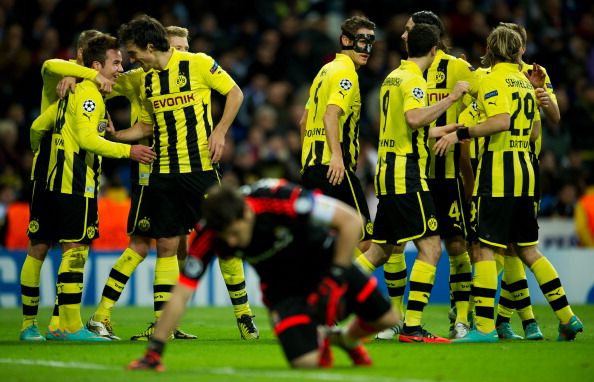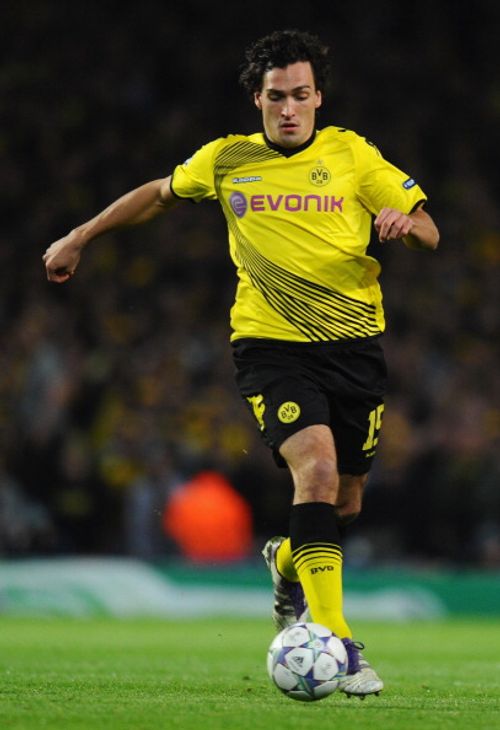
Defence the best form of offence, just ask the likes of Montpellier and Borussia Dortmund
Much has changed in football today, compared to what it was a decade ago. Clubs weren’t run by oil barons; players couldn’t hold clubs at ransom demanding exorbitant wages; player agents had much lesser bargaining power. With all this excess money, some clubs are financially advantaged than the others and they have even gone on to “buy” silverware. Anyone following the major leagues in Europe will point out that success and substantial investment in the squad go hand in hand.
While Chelsea, Real Madrid and Manchester City maybe emphatic testaments of the above statement, the other successful clubs like Barcelona, Manchester United and Bayern Munich have also spent big to win titles. There have been very few clubs who have bucked this trend and have won silverware in Europe without spending much. Valencia did it in the early 2000s under Rafael Benitez, Borussia Dortmund have tasted success under Jürgen Klopp the last couple of seasons, Montpellier did it last season in France and Wenger’s “Invincibles” created history in 2004.

How were these teams able to win silverware and be financially prudent at the same time? Here’s a look at what these teams did right and the lessons other clubs can learn from these truly heroic stories.
Before going into the strategies and tactics employed by these clubs, one needs to understand the significance of each of these triumphs in terms of how far these clubs have come and the obstacles they have had to overcome en route to tasting success. Each of these victories is a fairy tale in itself.
Montpellier HSC was playing in the second division of French football three seasons before winning the club’s first ever Ligue 1 title. Borussia Dortmund was on the verge of bankruptcy in 2005. The club had to sell key players and existing players had to take wage cuts to keep the club going. Winning silverware the Dortmund way or the Montpellier way gives more meaning to the victory than winning it the Chelsea or Real Madrid way, i.e. by breaking the bank.
First, a look at the tactics used by these clubs. Defensive discipline was the bedrock of the successes of these clubs. It was not the fancy free flowing football but the well drilled defence which won them laurels. And the numbers tell exactly the same thing. Borussia
Dortmund in the 2011 season conceded just 22 goals in the entire season. Bayern Leverkusen and Bayern Munich who finished second and third conceded 44 and 40 goals respectively. Interestingly Bayern had scored 81 goals as against Dortmund’s 67 that season, but it was the defensive record, which made the telling difference in the end.
Valencia’s triumph in the 2003-04 season in Spain tells a similar story. They conceded 27 goals, 12 lesser than second placed Barcelona. Real Madrid in the same season scored more goals than Valencia but conceded twice as many goals as the eventual champions.
A look at the 2011-12 Ligue 1 table tells no different story – Montpellier scored fewer goals than the title contenders but importantly conceded fewer goals as well (34 goals , the lowest in the league).

It is a very important lesson that a club like Arsenal can learn today. Many a time people get carried away by the free flowing one touch football that clubs almost tend to ignore the importance of a solid back four. While the ploy of having a weak defence and a strong attack may work against the mid and bottom table teams, it definitely won’t work against a top team. Building a strong defence is not something that can be achieved overnight. It is not easy to build a team with greater emphasis on defence than attack. The right characters are needed at different levels in the club to implement such a tactic.
Of late Arsenal have not been taking their defence seriously. It was evident when Wenger brought in players like Squillaci and Silvestre. If Arsenal have to end their trophy drought they have to take a leaf out of the books of these clubs and add steel to their defence.By right characters, I mean managers like Rafael Benitez and Jürgen Klopp whose management styles lay greater emphasis on tight well organized defences. And you need the right players as well. All these clubs had a talismanic defender or two. Dortmund had the defensive pairing of Neven Subotic and Mats Hummels; Arsenal in 2003-04 had Sol Campbell and Kolo Toure; Valencia had the experienced Roberto Ayala and as for Montpellier, Mapou Yanga Mbiwa stepped up for them in 2011-12 season.
Another point worth noting is the way these clubs defend. It is not just the back four defending, but the midfield does a lot of defensive work as well. In other words, they defend as a team. And again they had midfielders who would do all the dirty work and shield their defences. The Arsenal team of 2003-04 had Patrick Vieira and Gilberto Silva in the middle of the park, both players who were more the hard tackling, defensive type of midfielder. Nuri Sahin and Sven Bender did the same job for Dortmund in the 2011 and 2012 seasons. Sahin was in fact voted the player of the season in Bundesliga in 2011. David Albeda played a major role in the Valencia team that won the League in 2002 and 2004.
The midfield doing its share of defensive work is absolutely crucial for teams to defend well. It is one of the reasons why teams opt to have an out and out defensive midfielder like Sergio Busquets or a Alex Song. Again drawing a comparison with Arsenal, the current midfield of Santi Cazorla, Jack Wilshere and Mikel Arteta looks fantastic on paper and they will play eye catching one touch football, but there is every chance they will be overpowered by teams like Man City or Stoke.

Clubs like Dortmund and Valencia have shown that David can indeed win against Goliaths like Bayern Munich, Real Madrid and Barcelona. Their victories hold key defensive lessons for clubs to learn if they have to replicate their success. Clubs have to start building from the back and defend as a team. Shoring up the defence is of paramount importance, the goals and titles will eventually follow. The Dortmunds and Valencias have proved “defence is the best form of any offence.”